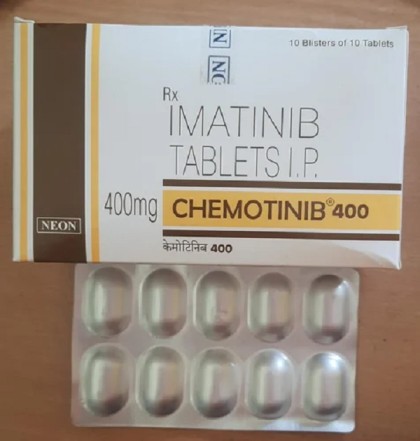Product Introduction:
Pazonat 400mg belongs to a class of medications called tyrosine kinase inhibitors (TKIs). It is primarily used in the treatment of renal cell carcinoma (RCC) and advanced soft tissue sarcoma (STS) in patients who have received prior chemotherapy. The medicine targets multiple enzymes responsible for tumor growth and blood vessel formation, offering a targeted approach to cancer therapy.
Uses:
Pazonat 400mg is used for the treatment of:
-
Advanced renal cell carcinoma (RCC)
-
Metastatic kidney cancer
-
Advanced soft tissue sarcoma (STS) after prior chemotherapy
-
Non-adipocytic soft tissue sarcomas
-
Maintenance therapy to prevent disease progression
-
Investigational use in other cancers like thyroid cancer (off-label, under clinical guidance)
Storage Instructions:
-
Store at room temperature (20–25°C)
-
Keep tablets in the original container, tightly closed
-
Protect from light and moisture
-
Keep out of reach of children
How It Works (Mechanism of Action):
Pazopanib inhibits multiple receptor tyrosine kinases, including VEGFR, PDGFR, and c-Kit. These receptors are involved in angiogenesis (formation of blood vessels) and cell proliferation. By blocking them, Pazonat cuts off the tumor’s blood supply and growth signals, effectively slowing or stopping tumor progression.
Side Effects:
Common side effects:
Serious side effects:
-
Liver toxicity (elevated liver enzymes)
-
Heart rhythm changes (QT prolongation)
-
Gastrointestinal perforation (rare)
-
Bleeding or blood clot events
-
Proteinuria (protein in urine)
Dosage (Typical Recommended Dose):
-
The recommended dose is 800 mg once daily (usually two 400mg tablets)
-
Dose may be adjusted to 400 mg daily depending on patient tolerance and side effects
-
Take consistently either with food or without food, but not interchangeably
Method of Administration:
-
Take orally with a full glass of water
-
Swallow tablet whole – do not crush, chew, or split
-
Take the dose at least 1 hour before or 2 hours after a meal
-
Preferably taken at the same time each day
Precautions:
-
Monitor liver function regularly – risk of hepatotoxicity
-
Use contraception during and at least 2 weeks after treatment
-
Not recommended during pregnancy or breastfeeding
-
Monitor blood pressure during treatment
-
Avoid antacids and PPIs which may reduce drug absorption
-
Avoid alcohol and smoking, which can worsen liver effects
Drug Interactions:
-
CYP3A4 inhibitors (e.g., ketoconazole, clarithromycin) may increase toxicity
-
CYP3A4 inducers (e.g., rifampin, phenytoin) may decrease effectiveness
-
Antacids, H2 blockers, and PPIs can interfere with absorption
-
May interact with QT-prolonging drugs and blood thinners
Allergies:
-
Rare allergic reactions may occur — signs include rash, itching, facial swelling, dizziness, or difficulty breathing
-
Discontinue immediately and seek emergency medical help if symptoms occur
Overdose Information:
-
Symptoms: Severe hypertension, nausea, liver failure, altered mental state
-
No specific antidote exists
-
In case of overdose, provide supportive care and monitor vital signs
Missed Dose Instructions:
-
If a dose is missed by less than 12 hours, take it as soon as remembered
-
If more than 12 hours late, skip the missed dose and continue as scheduled
-
Do not double the dose to make up for the missed one
Additional Notes:
-
Liver function tests (LFTs) should be done before and during therapy
-
Blood pressure must be checked regularly
-
Patients should report signs of bleeding, yellowing of skin/eyes, chest pain, or severe fatigue
-
Avoid grapefruit or grapefruit juice, which may increase side effects
-
Inform your doctor about all medications and herbal products being used




